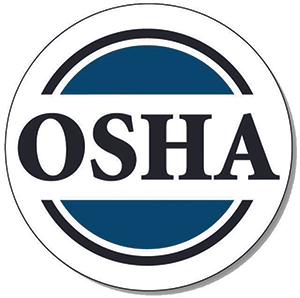Contractor faces $584,333 in fines for exposing workers to fall hazards
Guelsin Lima, operating as Extreme Roofing and Siding LLC, Trenton, N.J., faces more than $584,000 in fines after an inspection by the Occupational Safety and Health Administration found workers on a roof exposed to a 30-foot fall hazard without fall protection. The contractor is not an NRCA member.
Following the inspection July 6, 2022, at an Upper Saddle River, N.J., worksite, the agency issued Lima 12 citations—nine willful and three serious violations—and proposed $584,333 in penalties for exposing workers to fall hazards, improperly using ladders, and failing to provide head and eye protection.
In March 2022, Lima was issued four willful and two serious violations, and OSHA proposed $247,309 in penalties after inspectors noted failure to provide fall protection and head and eye protection for workers installing roof shingles.
Lima had 15 business days from receipt of the citations and penalties to comply, request an informal conference with OSHA’s area director or contest the findings before the independent Occupational Safety and Health Review Commission.
OSHA publishes interim final rule regarding whistleblower retaliation complaints
The Occupational Safety and Health Administration recently published an interim final rule establishing procedures and time frames for handling employee retaliation complaints under the Criminal Antitrust Anti-Retaliation Act, which was enacted Dec. 23, 2020. The interim final rule took effect Feb. 10.
The Department of Labor and Department of Justice will collaborate to enforce the Criminal Antitrust Anti-Retaliation Act to ensure protection of whistleblowers from retaliation for reporting potential criminal antitrust violations or engaging in other protected activities, such as testifying for, participating in or assisting with certain federal government investigations or proceedings.
Protected reports include providing information to an employer or the federal government related to price fixing, bid rigging or market allocation schemes between competitors, or information relating to violations of other criminal laws committed in conjunction with potential violations of the criminal antitrust laws or in conjunction with a Department of Justice investigation of potential violations of those laws.
OSHA accepted public comments regarding the interim final rule through April 23.
OSHA issues enforcement guidance to make penalties more effective

|
The Occupational Safety and Health Administration has issued new enforcement guidance to make its penalties more effective in stopping employers from repeatedly exposing workers to life-threatening hazards or failing to comply with certain workplace safety and health requirements.
OSHA regional administrators and area office directors now have the authority to cite certain types of violations as “instance-by-instance citations” for cases where the agency identifies “high-gravity” serious violations of OSHA standards specific to certain conditions where the language of the rule supports a citation for each instance of noncompliance. These conditions include lockout/tagout, machine guarding, permit-required confined space, respiratory protection, falls, trenching and for cases with other-than-serious violations specific to record keeping.
The change is intended to ensure OSHA personnel are applying full authority of the Occupational Safety and Health Act where increased citations are needed to discourage noncompliance. The new guidance covers enforcement activity in general industry, agriculture, maritime and construction; it took effect March 27. The previous policy was in place since 1990 and applied only to egregious willful citations.
OSHA also is reminding its regional administrators and area directors about their authority to not group violations and instead cite them separately to more effectively encourage employers to comply with the intent of the OSH Act.
DOL issues final rule regarding employee retaliation complaints

|
The Department of Labor issued a final rule regarding handling employee retaliation complaints under the Taxpayer First Act, which was enacted July 1, 2019.
The act protects employees who report or assist in an investigation regarding underpayment of taxes or potential violations of the internal revenue laws or federal laws relating to tax fraud. It also protects employees who assist in any action taken by the IRS relating to these issues.
The final rule adopts the procedures and time frames established in the Occupational Safety and Health Administration’s interim final rule—published March 7, 2022—without substantive change.
The final rule took effect March 13.



